Severe Corn Rootworm Injury to Bt Hybrids in First-Year Corn Confirmed
On August 26, Joe Spencer an entomologist with the Illinois Natural History Survey, and I traveled to Livingston and Kankakee counties and confirmed significant western corn rootworm larval injury in first-year cornfields that had been planted to Bt rootworm hybrids (VT Triple PRO RIB – expresses the Cry3Bb1 protein). The fields in question were brought to our attention by Bryan Johnston, Cabery Fertilizer, Cabery, Illinois. Bryan indicated that many first-year Bt cornfields in the area had severe root pruning and lodging. The fact that rotated corn is now showing susceptibility to rootworm damage, even when planted to certain Bt hybrids, is evidence that crop rotation in central and east central Illinois does not adequately confer a consistent level of root protection. Joe Spencer collected numerous adult western corn rootworms in the damaged corn and adjacent soybean fields. The number of beetles in the soybean fields was reminiscent of densities in the late 1990’s and early 2000’s — very impressive. The density of western corn rootworm adults in both crops, along with the severe pruning and lodging, was additional evidence that the Bt hybrids (VT Triple PRO RIB) had failed to offer the necessary root protection. Bioassays on the offspring from the adults collected by Joe Spencer will be required to determine if these rotation resistant western corn rootworms are also resistant to the Cry3Bb1 protein. If the bioassays confirm resistance to the Cry3Bb1 protein, producers across a wide swath of Illinois will have a formidable insect foe capable of overcoming both crop rotation and at least one Bt protein (Cry3Bb1).
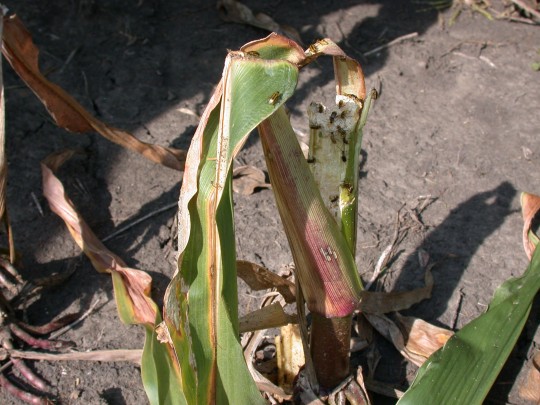
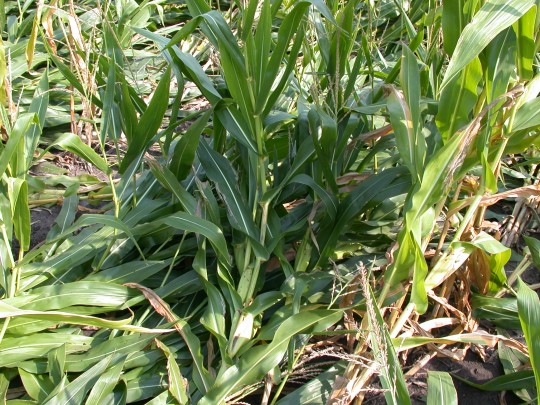
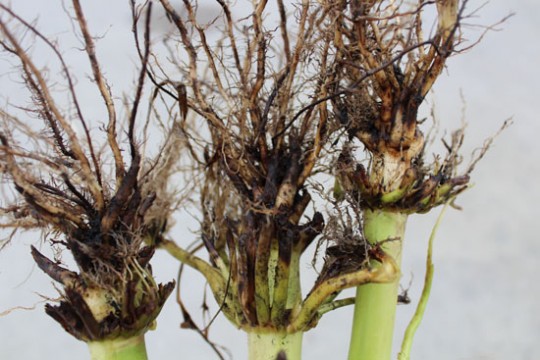
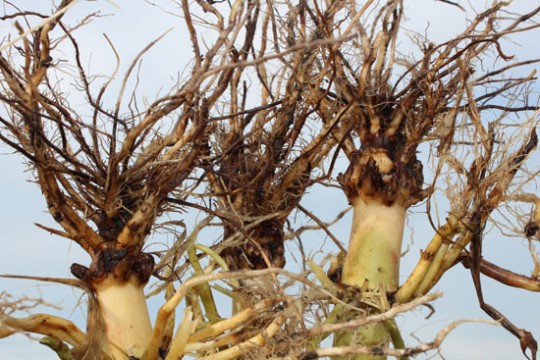
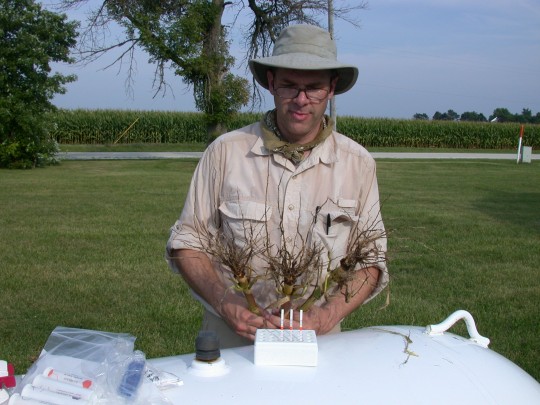
Producers across east central and central Illinois are encouraged to look for corn rootworm injury in their first-year cornfields. From the roadside, it is very easy to overlook areas of fields that may be lodged. I suspect that during harvest, many producers may be surprised to see pockets within fields that have been severely damaged by corn rootworms. Looking ahead — now is the time to begin thinking about how best to protect against corn rootworm damage in 2014. Producers in the most severely affected areas (central and east central) of Illinois should consider the use of pyramided Bt hybrids (hybrids expressing more than one rootworm Cry protein) in 2014. The use of a planting-time soil insecticide should not be needed with a pyramided Bt rootworm hybrid. Producers who elect to plant Bt hybrids expressing only a single Cry rootworm protein may choose to use a planting-time soil insecticide as an added caution, particularly in areas where single-traited Bt hybrids (VT Triple PRO) have failed this season.
Mike Gray





